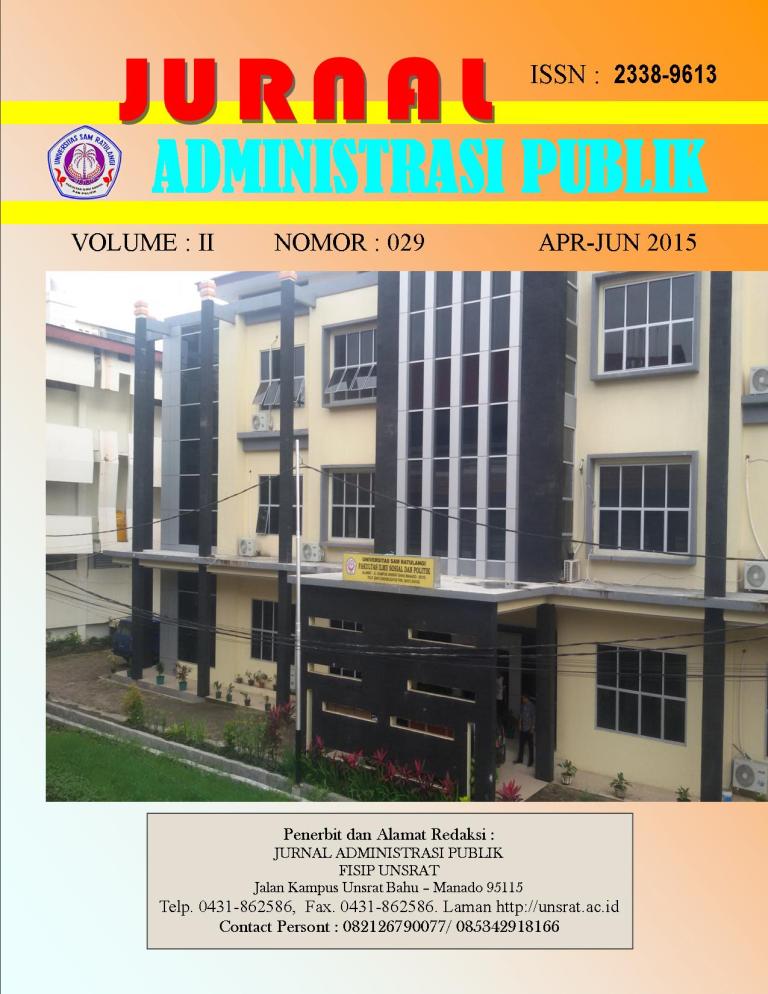Implementasi Kebijakan Pengasuhan anak dalam meningkatkan Sumber Daya Manusia di Panti Asuhan Nazareth Tomohon
Abstract
ABSTRACT : Orphange is a childcare intitute that have function to serve, nurture, educate, and full fill the rights of children. In this place children will be custody by implementor to replace parent’s role to nature, and give education to child so they can grow up with good quality, useful, and can responsibility for them self and other people one day. The child get in orphange is because they family have a economic difficulty, or don’t have a parents so they can be categorized as a orphan. This research try to explain childcare policy implementation in increase human resource at Nazaret Tomohon orphanage.
This research use qualitative method so can get a result through an a direct observation and get interview from a few informan. to guide this research implementation theory from Van Meter and Van Horn has been used, that policy implementation is based to standard and policy purpose, human resource, organisation characteristic, executive, communication between related organisation, disposition.
This research found that childcare policy implementation in increase human resource can be seen from standard and purpose of policy, human resource, characteristic executive organisation, communication between related organisation, and executive is already effective in childcare implementation because it based on religion value, ethics, moral, and exemplary from care givers. The conduction that can get from this research is the ability from caregiver can perform a good nurture so the quality from human resource can increase.
Keywords : policy implemntation, human resorce, Orphange








